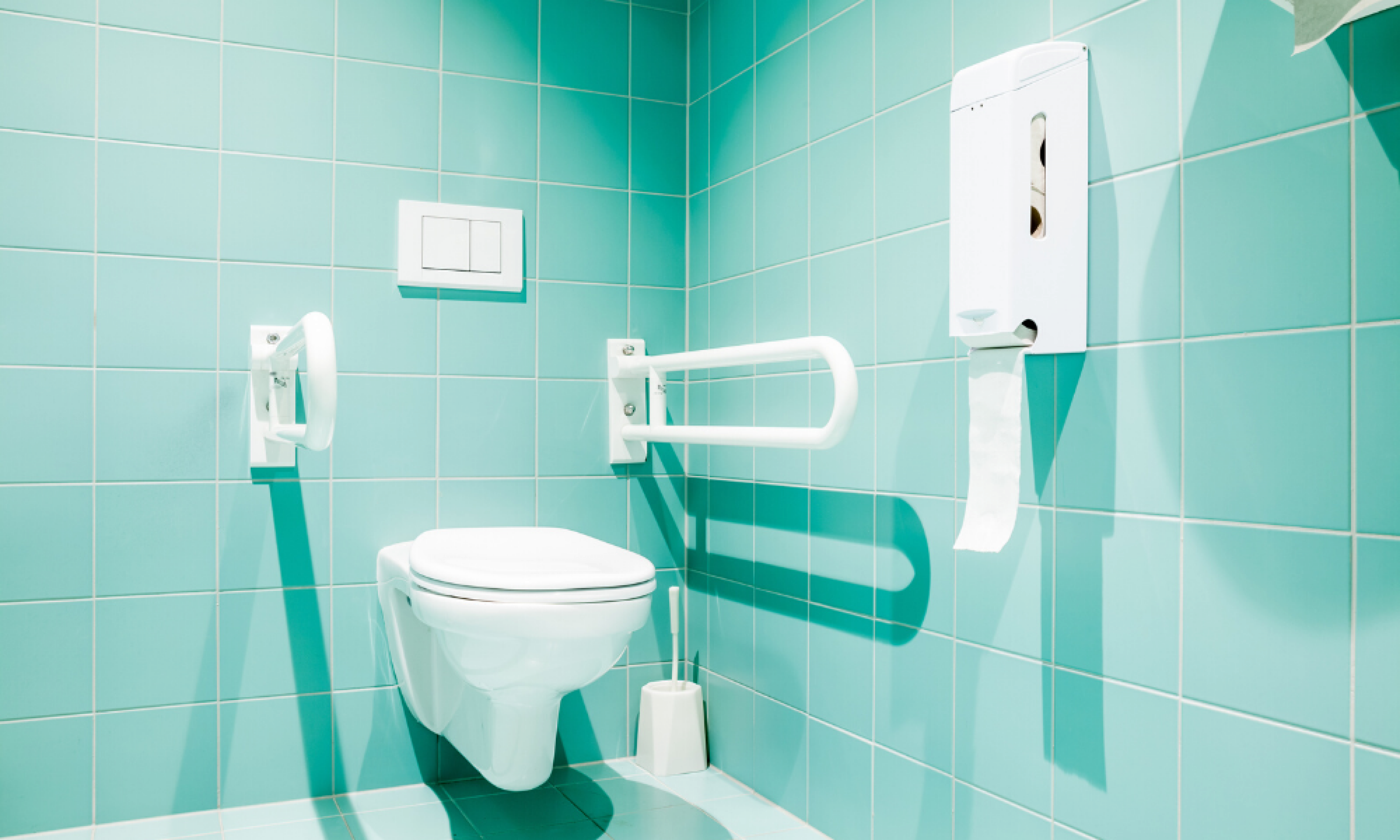Is it okay to use the accessible toilet when you don’t have a disability? - A User Guide to Toilet Etiquette - by Susan Seipel

Currently, there are no laws that mandate accessible facilities for the exclusive use by people with disabilities. Unlike Disability Parking, which will earn you a substantial fine if you don’t have a permit. It is comforting to know you will not be arrested with your pants down for using the lavatory. However, just because something isn’t illegal to do, is it socially acceptable?
Accessible toilets are designed differently for a reason. The purpose is to remove a barrier and enable a person to gain access to perform a basic human function. An obvious example of this is the greater space allowance, which enables a wheelchair user to physically enter the cubicle and close the door for privacy. Other common features include:
● handrails,
● lowered fixtures and fittings (so they can be reached from a seated position),
● higher toilet seat (for easy transfer from a wheelchair),
● emergency alarm cord or button to call for assistance,
● and a contrasting coloured seat plus Braille signage for those with vision impairment.
These variations accommodate a range of disabilities, so be mindful that not every user will have a noticeable impairment. Having more ambulant toilets and Changing Places (http://www.changingplaces.org.au/) will provide for diversity within the disability community.
I think the quick and proper use of accessible toilets by able-bodied individuals when there are no other options is not a big problem, but the misuse and abuse of facilities is a real issue.
Recently I was waiting a very long time to use a unisex accessible toilet in an airport and had to knock on the door as my flight was boarding. A man walked out and ushered me in. Upon closing the door my nostrils were assaulted by the overpowering smell of cigarettes, plus the floor was cluttered with paper and mysterious wet patches. A messy obstacle course that an able-bodied person could avoid is impossible to dodge on wheels. Another common problem is using the space in the accessible bathroom for storage. (Insert angry face emoji here!)
Therefore, the moral decision is simple; it is a matter of courtesy to use the bathroom suited to your abilities and not abuse the privilege. When you have the luxury of choice use it wisely because those who need modifications do not have any other options!
About the author:
Susan Seipel is a diverse para-athlete with a background in swimming, equestrian, and is a triple World Champion in the sport of Paracanoe.
She won a Bronze medal at the 2016 Rio Paralympic Games and was the first Australian in history to win a medal in Paracanoe at Paralympic level. Currently, she is training towards the 2020 Tokyo Paralympic Games.
Outside of sport, Susan is a proud ambassador for the RSPCA Queensland and is passionate about animal welfare, as well as disability issues.

Add comment